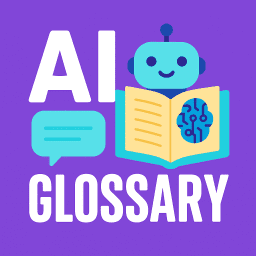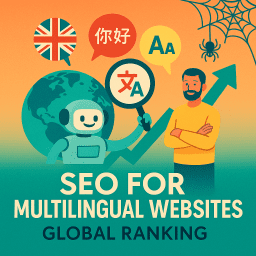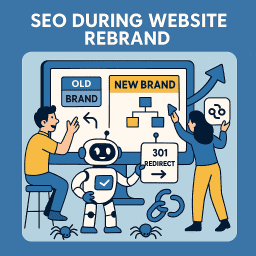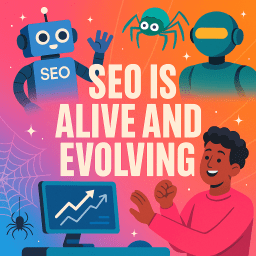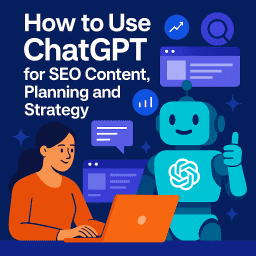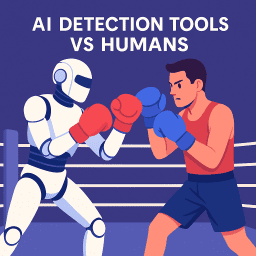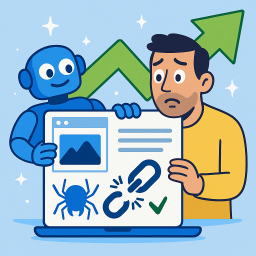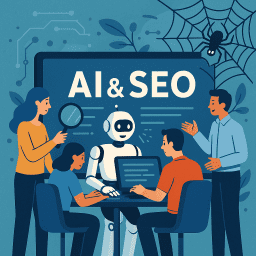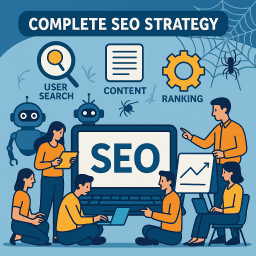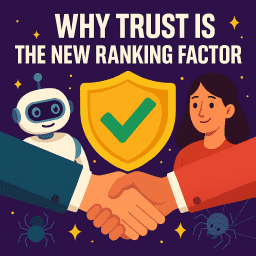Google AI Overviews: Full SEO Guide to Ranking in 2025
A Complete SEO Guide to the New Google AI Snapshot Feature
🤖 What Are Google AI Overviews?
Google AI Overviews are AI-generated summaries that appear at the top of search results, providing users with quick, concise answers to their queries. Previously referred to as the Search Generative Experience (SGE), this feature is now live in the U.S. and expanding to more countries in 2025.
Instead of showing a traditional list of blue links, AI Overviews generate a short, paragraph-style answer pulled from multiple sources across the web — often citing those sources with small, tappable cards or links. They appear for a growing number of queries, especially those involving how-tos, comparisons, product questions, and general knowledge.
🔍 How AI Overviews Work (Behind the Scenes)
When a user searches for something like “best Science Fiction, time travel books,” Google’s AI uses a combination of large language models (LLMs), traditional ranking systems, and its Knowledge Graph to generate a response. The system doesn’t just pick one webpage — it analyses multiple high-ranking sources, extracts relevant details, and composes a coherent summary in seconds.
Crucially, Google says AI Overviews are not purely generated by the model — they are rooted in existing web content and strive to cite sources. However, the exact content that appears is created dynamically, and rankings for cited links may not match their original SERP positions.
📌 Where Do AI Overviews Appear?
- Above the traditional organic results (Position Zero)
- For queries involving “best,” “how to,” “which,” “can I,” and other natural-language structures
- On both desktop and mobile (often more visible on mobile)
- In topic navigation panes with follow-up questions or refinements
AI Overviews don’t appear for every query — but they’re becoming more common across commercial, informational, and local intents.
🎯 How to Optimise for Google AI Overviews
Google states that optimising for AI Overviews primarily relies on standard SEO practices. There is no need for a separate “AI SEO” strategy. Google’s systems for AI Overviews are built on the same foundation as traditional search, using the same crawler, index, and ranking systems. The focus should remain on creating high-quality, helpful, and reliable content that follows general SEO best practices.
Google doesn’t allow websites to directly “opt into” or “submit” content to AI Overviews. However, there are clear signals and tactics that influence whether your content gets cited:
- Answer-Focused Content: Use clear subheadings, short paragraphs, and direct language that matches common queries.
- High E-E-A-T: Demonstrate experience, expertise, author identity, and external authority through reviews, links, and bios.
- Schema Markup: Use FAQ, HowTo, and Article schema to structure your data clearly for AI extraction.
- Topical Authority: Cover a subject thoroughly across your site, not just on one page. Topic clusters matter more than ever.
- Natural Language Style: Write in a way that matches conversational queries and intent-driven searches.
- Consistency: Provide consistent information that matches trusted sources. Contradictions = risk.
If your content ranks well and matches user intent clearly, there’s a strong chance it can be cited in an AI Overview — even if you’re not Position 1.
🔗 Do AI Overviews Include Clickable Links?
Yes — but they’re subtle. Instead of full URLs, Google shows small cards or underlined citations next to key claims. These often link to high-authority websites, sometimes even to pages that aren’t in the top 3 organic results.
This creates a new layer of search visibility — one where being cited is more important than simply ranking #1.
📉 The Downsides of AI Overviews
- Fewer Clicks to Websites: Many users get the answer they need without clicking anything, hurting organic CTR.
- Unpredictable Source Selection: You can have great content and not be cited, while less-optimised pages are.
- Reduced Brand Visibility: Brand mentions in AI summaries are often stripped of links or formal attribution.
- Higher Competition for Topical Authority: Winning AI Overview visibility often means dominating an entire niche.
For some publishers, especially in affiliate and product review spaces, AI Overviews feel like a threat to traffic — and in some cases, they are.
✅ The Positives (Yes, There Are Some)
- New Pathways to Visibility: Sites that don’t rank #1 organically can still be cited — often ahead of competitors.
- Better User Experience: AI Overviews make search easier and faster, which Google prioritises.
- Content Quality Over Link Building: You don’t need the biggest backlink profile — you need relevance, clarity, and trust.
- Emerging SEO Opportunities: Sites that adapt early to AI-format content stand out from the crowd.
Think of AI Overviews as a shift in visibility — not necessarily a loss of it.
🧠 What Types of Content Get Cited Most Often?
- Well-structured blog posts with direct answers to common questions
- Comparison and roundup articles (“Best tools for X”)
- Clear explainer articles written in plain English
- Government or official health/education websites (for sensitive topics)
- Forum answers (like Reddit or Stack Exchange) for experience-driven queries
SEO content in 2025 must be skimmable, scannable, and semantically rich — or risk being ignored by both users and AI systems.
📈 How to Track AI Overview Citations
Google Search Console currently does not report AI Overview visibility. However, here are workarounds:
- Use tools like Thruuu or AlsoAsked to monitor AI-trigger queries
- Search manually in Incognito to spot when your pages are cited
- Use traffic drop analysis to spot unlinked citations in AI Overviews
- Track changes to CTR in GSC for AI-triggering queries
📚 SEO Strategy for the AI Overview Era
- Focus on semantic relationships, not just keywords
- Build topic clusters with internal links
- Include FAQs and concise definitions on key pages
- Optimise content for both human readability and AI parsing
- Test and iterate using AI tools like ChatGPT, Claude, and Perplexity to see how they summarise your content
In short: write for people, structure for machines.
💬 What the Experts Are Saying
“AI Overviews are not just a feature — they’re a fundamental shift in how Google delivers value to users.”
— Lily Ray, SEO Director at Amsive Digital
“SEO isn’t dead — it’s evolving. You now need to optimise for visibility *inside* the answer box.”
— Barry Schwartz, Search Engine Roundtable
“Google’s AI Overviews reward clarity, not just authority. The bar for helpful content just got higher.”
— Aleyda Solís, International SEO Consultant
“When Google starts writing the answers, your job isn’t to rank — it’s to be the source it trusts enough to quote.”
— David Roche, The SEO Guide Book
❓ FAQs
What are Google AI Overviews?
AI Overviews are short, AI-generated summaries that appear at the top of search results to answer user questions using multiple web sources.
Can I disable AI Overviews for my site?
No, Google does not currently offer a way to opt out. However, you can use the nosnippet tag to prevent certain content from being used — though this may reduce your overall visibility.
How do I know if my site is being cited?
There’s no official tracking yet. You’ll need to monitor SERPs manually or track CTR changes in Search Console as a proxy.
Do AI Overviews replace featured snippets?
Not always. Sometimes they coexist. In many cases, AI Overviews have replaced featured snippets as the top result, especially for complex queries.



